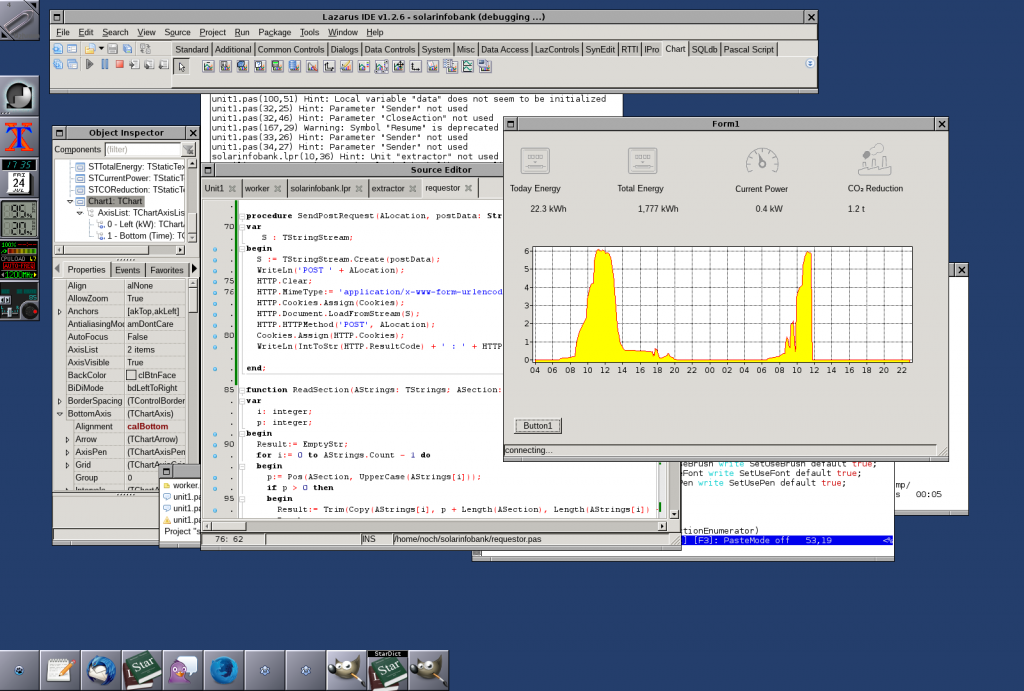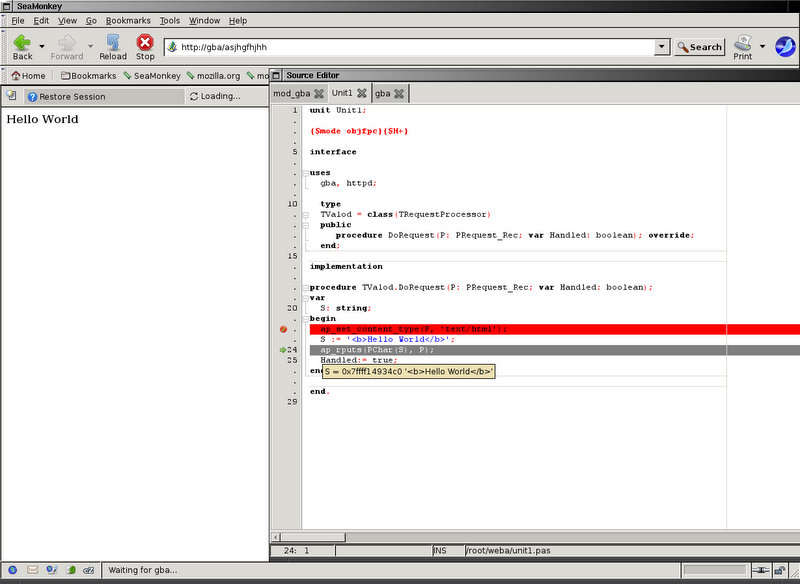
ահա եւ ելատեքստը
ու տենց
Let’s write a minimal module with one exported function in Oberon:
MODULE m;
PROCEDURE add*(a, b : INTEGER): INTEGER;
BEGIN
RETURN a + b;
END add;
END m.
We even can compile it now with oo2c
$ oo2c m.Mod
and get directories obj and sym.
We may now compile obj/m.c
and get an object m.o
gcc -Iobj -I/local/oo2c/lib/oo2c/src -I/local/oo2c/lib/oo2c/obj -c obj/m.c
Now we need a pascal wrapper to bind it.
Let’s call it mbind.pas
unit mbind;
{$link m.o}
(*oo2c objs to link*)
{$link RT0.o}
{$link Object.o}
{$link Exception.o}
{$link HashCode.o}
{$linklib c}
interface
uses CTypes;
function m__add(a, b : ctypes.cint16) : ctypes.cint16; cdecl; external;
(*
/local/oo2c/lib/oo2c/obj/C.oh
typedef OOC_INT16 C__shortint;
*)
implementation
end.
We need to tell compiler explicitly which object files to link.
m.o is the object file we get by compiling obj/m.c
Other files are the minimal oo2c rtl which needs to be linked.
We also need to link to libc, because oo2c works by compiling via C.
Function name is m__add because oo2c translates m.add to C as m__add
Note, that implementation section is empty, and fpc does not issue an error because the function marked as external.
Eventually, let’s write a main module to call the Oberon function.
program m0;
uses mbind;
var i : integer;
begin
i := m__add(20, 3);
writeln (i);
end.
Neither fpc nor oo2c do not need a make file.
FreePascal compiler, as well as Oberon can itself resolve module dependencies.
For example, I do not need to write a makefile where I compile first mbind.pas and get mbind.o and link it during the next step.
However, in this case I’d like to write a make file.
IPATH = -Iobj -I/local/oo2c/lib/oo2c/src -I/local/oo2c/lib/oo2c/obj
LPATH = /local/oo2c/lib/oo2c/obj
GCC = /usr/bin/gcc
OO2C = /local/oo2c/bin/oo2c
FPC = /local/fpc/bin/fpc
all:
$(OO2C) m.Mod
$(GCC) $(IPATH) -c obj/m.c
$(FPC) -Fo$(LPATH) -Fo. m0.pas
clean:
rm *.o
rm *.ppu
I usually use custom fpc I compiled from subversion, and I prefer to keep my software in /local
LPATH is the path where oo2c main rtl objects are located, so fpc can find and link RT0.o, Exceptions.o, Object.o and HashCode.o.
So, first oo2c compiles the m module to c.
Then gcc compiles it to object file.
Then fpc compiles the main module.
And now enjoy:
$ ./m0
23
und so weiter
Uploaded my photographic light meter for maemo: https://garage.maemo.org/projects/lightmeter
}}
}}
and this is a thread at maemo talks.
ու տենց

}}
}}
ահա, Լազարուսը քոմփայլ եղավ, ու աշխատեց ։Ճ
վիքիները (սա եւ սա) նորացվեցին։
ու տենց

որը նույնիսկ դեբագ ա լինում անել։
ու տենց
freepascal compiler֊ով (fpc) հավաքած ծրագրերը ամենաքիչ օպերատիվ հիշողություն ծախսող ծրագրեր են։
ու տենց
TMultiReadExclusiveWriteSynchronizer
_ու տենց _
This guy have been written Wiki and Forum in Object Pascal. They could be compiled with FreePascal, Delphi or Kylix.
He also wrote few articles and you can find them in his PasWiki
FreePascal main developer FPK’s blog at http://www.florianklaempfl.de/nucleus/